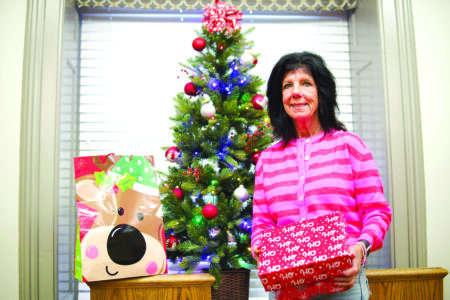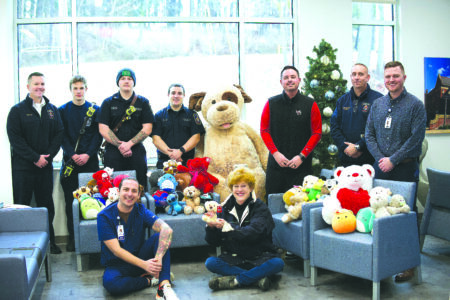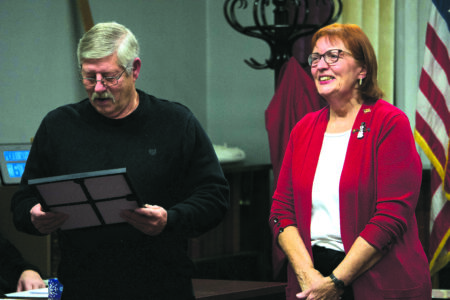First day of trial in cemetery theft case

T-L Photo/ ROBERT A. DEFRANK Defense attorney Adam Myser, left, and Keith Dwayne Baratie Sr., caretaker of the Belmont Memorial Park Cemetery, during the first day of his trial.
ST. CLAIRSVILLE — The trial of the second co-defendant accused of stealing almost $300,000 from the Belmont Memorial Park Cemetery while serving as its caretaker began Tuesday before Belmont County Common Pleas Judge John Vavra.
Keith Dwayne Baratie, 51, of 121 Newell Ave., St. Clairsville, is accused of one count of forgery, one count of aggravated theft and one count of securing writing by deception.
His wife and co-defendant, Karen Sue Ellen Neff, was found guilty of the same charges and sentenced Monday to four and one-half years in prison and restitution of $282,240 to the cemetery, now the responsibility of Richland Township. She was found guilty after a four-day trial, in which extensive financial records were reviewed by the jury. During her sentencing hearing, Neff maintained that she and Baratie were the legitimate successors to the association.
Baratie and Neff presented themselves as the Belmont County Cemetery Association to sell the oil and gas rights for the cemetery for $282,240 in 2013, then spent the money, according to the criminal complaint against the two. The prosecution has made the case that the cemetery association dissolved years ago.
Belmont County Chief Assistant Prosecutor Kevin Flanagan’s first witnesses were Josie Colvin of Bellaire and her brother, Robert Crosby of Bridgeport, who helped bring the situation to light.
Colvin testified that their parents had been laid to rest in the cemetery, and that she and her brother were dissatisfied with the cemetery’s maintenance. She said she attempted to contact Baratie.
“We wanted to find out who his boss was. Who he answered to. We wanted to take our concerns to them,” Colvin said, adding that she did not receive a satisfactory answer and looked further into the matter, determining that the association no longer existed and the cemetery had gone into receivership.
“I started to look on the Ohio Department of Commerce website,” she said. “We could not find anybody that was actually in control of the cemetery.”
In response to Flanagan’s questions, Colvin said Baratie never indicated he was president of the association or that he or anyone else had authority over the cemetery.
Baratie’s defense attorney, Adam Myser, questioned Colvin, noting that she never brought her concerns about the cemetery to Baratie.
Crosby testified to his purchase of two plots of two graves each from the cemetery on two separate occasions in September and October 2015, paying $1,200 cash for each plot. He said he dealt with Baratie and received a handwritten receipt for each transaction, but only received a deed for the plots after repeated requests. He said Baratie had told him during the September purchase that an association ran the cemetery.
“We couldn’t really find out who was actually operating the cemetery,” Crosby said, adding that Baratie never identified himself as the president of the association.
Myser displayed the handwritten receipts, pointing out that while Baratie did not sign it as president of the association, he did not sign it as an individual either, and that Crosby had reason to believe it was a binding agreement between himself and the cemetery. Myser displayed the deed given to Crosby, pointing out that the deed had been notarized.
In response to questioning, Crosby said while he never found evidence that Baratie was president of the association, he did not find evidence that Baratie was not president, either.
Crosby added that within the past two weeks he went to a local funeral home that keeps records of the cemetery plots, and found they did not have his deeds listed.
“There was a blank space and there was no name placed in there,” he said.
In response to Myser’s questions, Crosby said the funeral home placed his purchases in the records and reserved the lots when he showed them the deeds and receipt.
“Had you not checked, somebody else could have been placed in those lots,” Flanagan said. “So you having purchased those lots in September of 2015 and October of 2015 and ultimately getting a deed a couple of months later, guaranteed you absolutely nothing.”
“But it’s not that way,” Myser said. “It actually did guarantee you a lot.”
The trial continues today.




